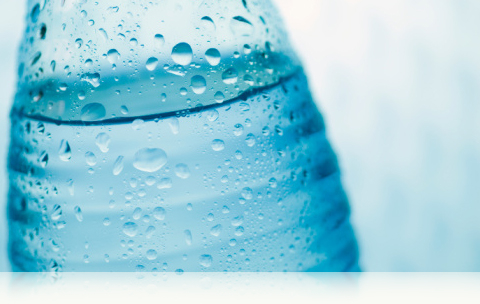
The Worst Product in All Creation
It’s no secret, or at least, it shouldn’t be, that bottled water is a scam. It doesn’t taste better than water out of the tap, it doesn’t prolong your life or make you a better lover. It’s just water that is a commodity sold at a premium.
Yet I often stumble across an article every six months or so in a national newspaper that chronicles the absurdity that is bottled water as though it’s something new. As if our lives depended on the knowledge of yet another marketing scam that has been rather successful. That people can’t often tell the difference between tap water and that from the French Alps or some delightful Italian spring.
To this I say, so what? Who cares if people are unintelligent enough to fall for a ploy that tries to make tap water into poison and bottled water into the very symbol of purity? Well, on the one hand, I do understand the consternation of municipal water officials who see their product (tap water) equated with junk. But at the same time, since people have a proclivity for needing to be lied to, and failing to recognize the total nonsense that one of the engineering marvels of the last century—access to a clean, life essential resource at virtually no cost—needs to be substituted for an overpriced commodity that takes a lot of energy to produce...well, I feel a little like a character in the 1980s movie “Airplane!,” who is unmoved by the plight of an impending plane crash and declares: “They bought their tickets, they knew what they were getting into. I say, let ’em crash!”
However, the story takes an additional turn now since everyone is talking about “carbon footprints” or “carbon credits.” Suddenly, the focus of bottled water articles is about how much energy it takes to produce a bottle that winds up your grocery shelf. A case in point: a friend and I wandered into a convenience store to get something to drink. I opted for water rather than soda, and he chided me, “You know how much oil it takes to make that?”
Let’s ignore the irony of paying $2 for a bottle of Earth’s most abundant resource in a convenience store because I fancied to do that and let’s focus on the inane idea that bottled water is at the heart of our current energy crisis. I wanted to ask him, “Do you know how much oil is needed to keep the electric juice flowing to light this store and keep the freezer cold? How much gas we expended even getting here merely because we were thirsty?”
But I didn’t say those things. I appreciated his awareness of the issue of water “bottled at the source in Fiji” (whatever that really means), put on a barge that sails to an American port and is then delivered by truck to a store. Yet he somehow has it in his mind that this alone constitutes some terrible act of environmental destruction that overshadows just about every other product we buy. It doesn’t, it’s all part of the same process, though his impatient demand made it seem otherwise.
My answer? Simple: “I recycle the bottle.”
Too many plastic bottled wind up in landfills, and for me, that’s the true environmental cost. Bottled water is easy and convenient when you are on the go, although tap water in a reusable container is just as fine. However, tossing the bottle in the trash doesn’t help anything at all: if you really want to be a responsible steward of the environment, recycle. How hard is that?
It’s unfortunate that local water companies do not have multimillion budgets to show the public the wonder that is clean drinking water coming from your tap. Here is where the bottled water companies shine, since they manipulate people into thinking 1) there is a debate about tap water; 2) bottled water is healthier for you. We know that strategy works since the bottle water industry is a bona fide marketplace winner (despite some recent setbacks, including the knowledge that Coca-Cola’s product Dasani is nothing more than tap water gone through an additional purification process). For myself, I’m just awed how anybody can get people to form an opinion about something that really has no basis, or at least, could be shattered if they spent a few minutes looking into the matter. (A little like religion, but that’s a separate story.)
But like wandering into a convenience store, we’re just too busy to do that. We need something and we need it now. In a service-based economy, our opinions are easily molded and difficult to change. This is probably why folks treat tap water like a terrible thing to drink (but they have no problem cooking, cleaning or showering with it, how’s that for additional irony?) and yet are starting to consider bottled water as the world’s largest producer of carbon. Can you imagine any person in the Third World having this conversation? Talk about not appreciating the things you have.
Bottled water is an absurdity, a farce, a marketing ploy. However, bottled water as the environmental enemy par excellence is equally idiotic. If you want a principled stand against bottled water, leave the carbon footprint argument behind and turn on the tap. And if you’re willing to pay a premium for what is essentially free in the form a plastic bottle, well, make it your personal jihad to recycle. It’s that simple.
Required Reading
Bottlemania: How Water Went on Sale and Why We Bought It